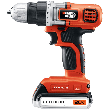Installing a Modular Storage System
Written by Lee Wyatt (last updated March 22, 2022)
Installing a modular storage system is one of the best possible ways to organize an extremely large or walk-in closet. While it can be a strenuous project, installing a modular storage system is something that anyone can do themselves. All you need to do is follow these simple guidelines and ensure that you have plenty of time to finish the project.
- Purchase a system. Before you can actually begin installing a modular storage system, you will need to first purchase such a system. When purchasing the system, make sure that it will fit the needs that you have as well as the space you have available. To ensure this, make sure that you take several measurements of the closet and compare them to the measurements on the system's packaging. This will help make sure that you get the right system and that you do not waste any money.
- Become familiar with the system. After purchasing your system, take it home and unpack it. Try to place all similar items together, so that you will know where each particular piece is when you need it. Most systems include (besides wood and metal shelving) things like locking caps, locking pins, joiner pins, and other connecting items. As you are unpacking the system, be sure that you do this in the same room that you will be installing it in. After you have unpacked everything and become familiar with the different pieces, take the time to read through the instructions at least twice.
- Seat all locking caps. Using either a rubber mallet or your fingers, start seating all the locking caps where they belong. This will help ensure that you do not loose any of the pieces when you need them later on. Make sure that you leave each of these caps in the open position so that you can later on assemble the system with no trouble.
- Begin assembling the system. Once you have seated all the locking caps, it is time to begin assembling the system. Do this by following the directions as given by the manufacturer. Typically this will mean that you place locking pins into the appropriate holes, and then joining the differing pieces with the locking pins and caps. Be sure that you tighten each cap appropriately so that you do not have your system fall apart when actually in use.
- 5 Level units. After you have assembled the complete first tier, as according to the directions that came with your unit, you need to check to make sure that everything is level. Do this by using a large carpenter's level. Make adjustments as necessary by placing shims (small pieces of wood or cardboard) under the appropriate corners. Double check your results after completing any shimming.
- Assemble second tier. Once you have leveled the units, begin assembling and attaching the second tier as directed by the manufacturer. Lift the second tier units into place by properly aligning the corners with the use of joiner pins. You may need some help in lifting these items into place as they can be pretty heavy, so be sure that you do not strain and hurt yourself.
- Attach accessories. After the basic shell has been assembled, it is time to begin attaching the accessories for the unit. Some examples of this would include things like any hardware (as in pulls and knobs), clothes rods, and hooks.
- Attach doors. Only after you have attached the accessories should you begin to attach the doors for the system—assuming the system even has doors. It is infinitely easier to attach the accessories before you attach the doors, as the doors can often get in the way of installing such things as the clothes rods.
- Add drawer rollers. Before you assemble any drawers, attach the drawer rollers. After adding the rollers, make sure that you check to see if they are level or not. Also as you attach them, be sure that you do not use too much torque on the screws, or you can end up making it easier for the screws to fall out later on.
- Assemble and attach drawers. Follow the manufacturer's directions and begin to assemble the drawers. As you assemble each drawer, place it in its corresponding place. This way you do not accidentally damage the drawers.
- Attach the top. Once you have finished assembling and attaching the drawers, you only have to attach the top of system. After you have finished attaching the top, all you need to do is clean up from your work, and begin filling the system up.
Author Bio
Lee Wyatt
Contributor of numerous Tips.Net articles, Lee Wyatt is quickly becoming a regular "Jack of all trades." He is currently an independent contractor specializing in writing and editing. Contact him today for all of your writing and editing needs! Click here to contact. Learn more about Lee...
Cleaning Clear Glass Shower Doors
Nothing really affects the general look of a bathroom as much as the shower doors. No matter how well you clean the rest ...
Discover More
Dealing with Interruptions at Work
One of the biggest frustrations you can have during the work day is interruptions. Even if the interruption is only for a ...
Discover More
Removing Rust Stains from Cotton
Cotton is an extremely popular type of material that almost seems to love to collect stains. Rust is a type of stain that ...
Discover More

Comments